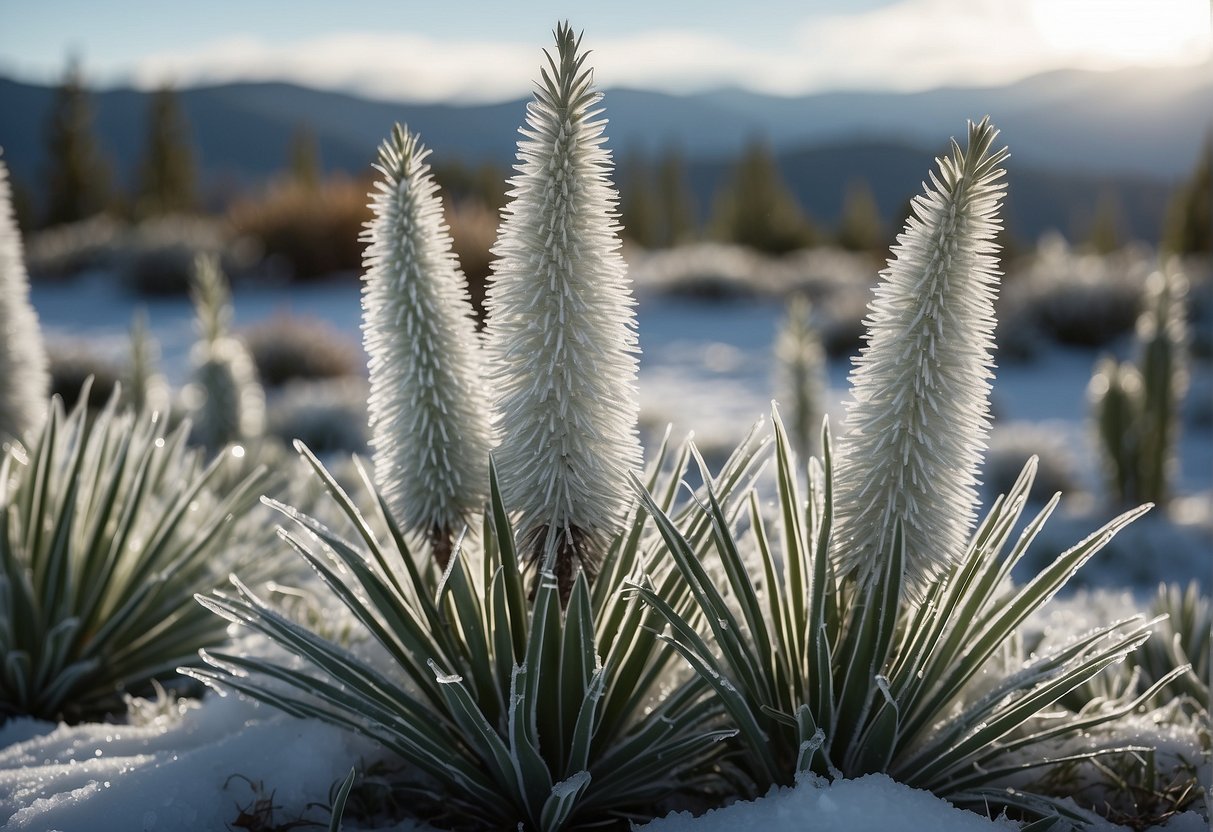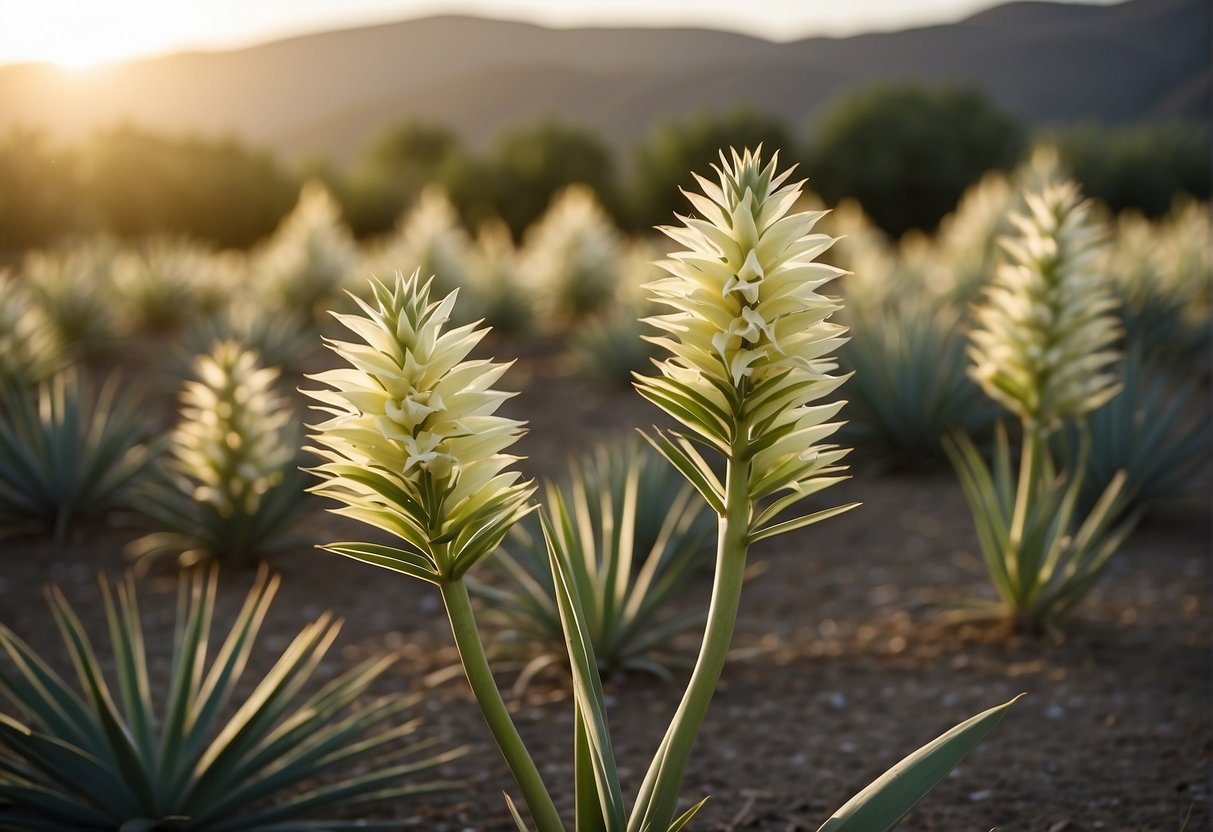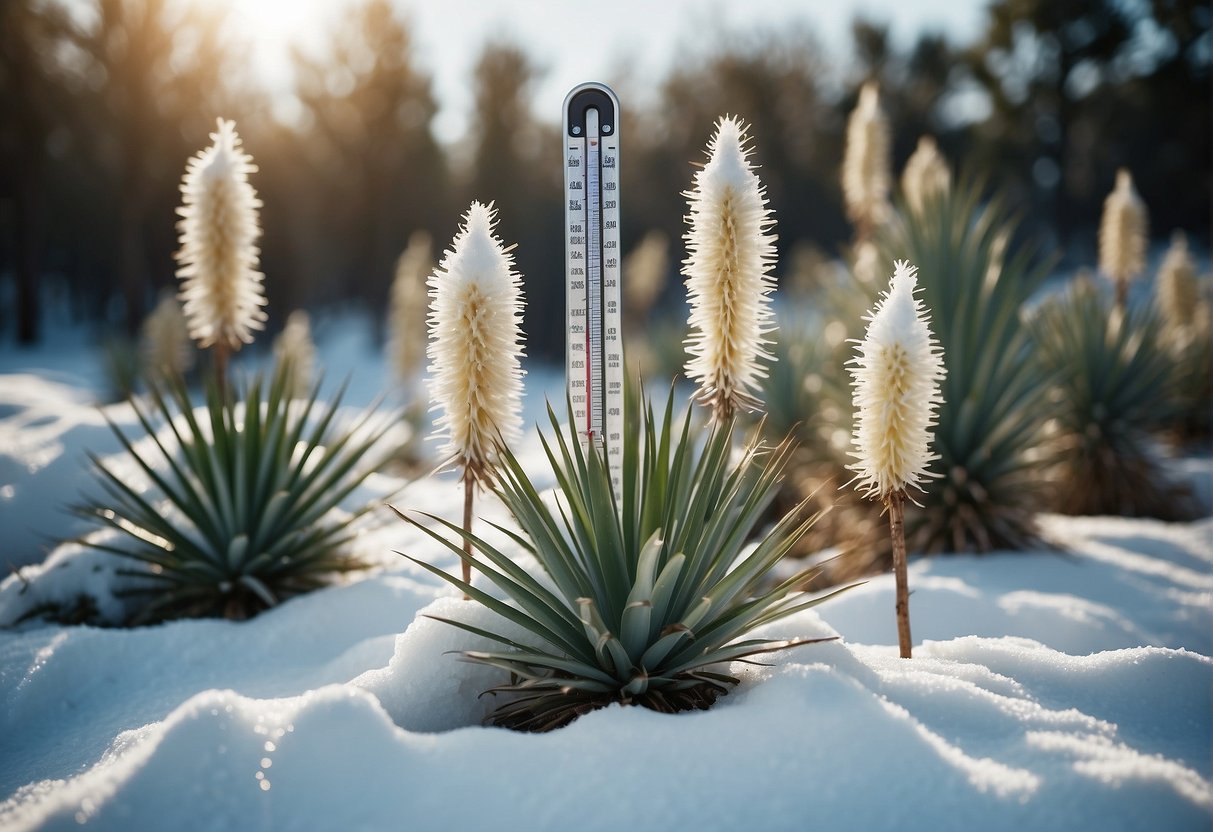How Cold is Too Cold for Yucca Plants: A Guide to Optimal Temperature Conditions
If you enjoy cultivating succulents, you might think about augmenting your assortment with a yucca plant. These resilient plants excel in various settings and are ideal for garden landscaping. However, should you reside in a locale that experiences chilly winters, the impact of such frigid temperatures on your yucca plant might be of concern to you. In this piece, we will delve into the ideal conditions for the growth of yucca plants and offer strategies on how to safeguard them against winter’s cold.

Yucca plants are native to arid regions of North and Central America, where they are exposed to hot, dry conditions. However, they can also tolerate colder temperatures, making them a great choice for gardeners in a variety of climates. While yucca plants can handle temperatures as low as 10°F, they prefer to be kept in temperatures between 60°F and 80°F. In this article, we’ll explore the best ways to keep your yucca plant healthy and happy, no matter what the temperature outside.
If you live in an area with cold winters, it’s important to take steps to protect your yucca plant from the cold. Yucca plants can be damaged by frost, which can cause the leaves to turn brown and die. To protect your yucca plant from frost, you can cover it with a blanket or tarp, or move it to a sheltered location. In this article, we’ll explore the best ways to protect your yucca plant from the cold, so you can enjoy its beauty all year round.
Key Takeaways
- Yucca plants are hardy and can tolerate a wide range of temperatures, but prefer to be kept in temperatures between 60°F and 80°F.
- Yucca plants can be damaged by frost, so it’s important to take steps to protect them from the cold.
- By following the optimal growing conditions for yucca plants and protecting them from the cold, you can enjoy the beauty of these hardy plants in your garden all year round.
Optimal Growing Conditions for Yucca Plants

Yucca plants are a popular choice for gardeners looking for a low-maintenance, drought-tolerant plant that adds a touch of desert flair to their landscape. If you’re planning on growing Yucca plants, it’s important to understand their optimal growing conditions to ensure their health and longevity.
Soil and Sunlight Requirements
Yucca plants thrive in well-draining soil that is slightly acidic. They prefer full sun, but can tolerate some shade. If you live in an area with heavy clay soil, consider amending it with sand or perlite to improve drainage.
Watering and Fertilizing Practices
Yucca plants are drought-tolerant and can go long periods of time without water. Overwatering can cause root rot, so it’s important to let the soil dry out between waterings. Fertilize your Yucca plant once a year in the spring with a balanced fertilizer.
Common Pests and Diseases
Yucca plants are generally pest and disease-resistant, but they can be susceptible to Yucca moths. These moths lay their eggs in the flowers of the Yucca plant, which can cause damage to the plant. To prevent Yucca moth infestations, remove any flowers as soon as they start to wilt. Root rot can also be a problem if the plant is overwatered or the soil is not well-draining.
Overall, Yucca plants are a great choice for gardeners looking for a low-maintenance, drought-tolerant plant that adds a touch of desert beauty to their landscape. By following these optimal growing conditions, you can ensure the health and longevity of your Yucca plant.
Protecting Yucca Plants from Cold
Yucca plants are generally hardy and can tolerate cold weather. However, extreme cold can damage them, especially if they are not native to the area. Here are some tips to protect your yucca plants from cold weather.
Understanding Yucca Cold Hardiness
Different yucca species have varying levels of cold hardiness. Yucca filamentosa and Yucca baccata are among the hardiest species, while other species may not be able to withstand freezing temperatures. It is important to know the cold hardiness of your yucca plants to determine the level of protection they need.
Preventive Measures and Winter Care
To protect your yucca plants from cold weather, you can take several preventive measures. Mulching around the base of the plant can help insulate the roots and protect them from fluctuating temperatures. Covering the plant with plastic or burlap can also provide extra protection from frost damage.
During winter, it is important to avoid overwatering yucca plants, as excess moisture can damage the crown and trunk. Instead, water them sparingly and only when the soil is dry to the touch.
Signs and Treatment of Frost Damage
If your yucca plant has been exposed to frost damage, you may notice browning or blackening of the leaves or stem. In severe cases, the plant may die back to the ground. To treat frost damage, prune away any dead or damaged parts of the plant and wait for it to regrow.
In conclusion, protecting yucca plants from cold weather is important for their survival. By understanding their cold hardiness, taking preventive measures, and providing winter care, you can ensure that your yucca plants stay healthy and thrive.
Frequently Asked Questions

What is the minimum temperature a yucca plant can withstand?
Yucca plants are generally quite hardy and can withstand temperatures as low as 15°F (-9°C). However, the exact minimum temperature a yucca plant can tolerate depends on the species and the growing conditions.
How do I care for my outdoor yucca plant during the winter?
During the winter, it’s important to reduce watering and fertilization to allow the plant to enter a state of dormancy. You should also protect the plant from excessive moisture and cold winds, which can damage the leaves and roots.
At what temperature should I bring my yucca plant indoors?
If you live in a region with cold winters, it’s a good idea to bring your yucca plant indoors when the temperature drops below 20°F (-6°C). However, if you live in a milder climate, your yucca plant may be able to stay outdoors year-round.
Which types of yucca plants are most cold-hardy?
Some of the most cold-hardy yucca species include Yucca baccata, Yucca glauca, and Yucca faxoniana. However, even these hardy species may require some protection during extreme cold snaps.
Can yucca plants survive a frost, and if so, how?
Yucca plants can survive light frosts, but prolonged exposure to freezing temperatures can cause damage to the leaves and roots. To protect your yucca plant from frost damage, cover it with a frost cloth or blanket when temperatures drop below freezing.
What are the best practices for yucca cold protection in Zone 7?
In Zone 7, where winter temperatures can drop as low as 0°F (-18°C), it’s important to provide extra protection for your yucca plant. This may include wrapping the plant in burlap or frost cloth, mulching around the base of the plant, and providing a windbreak to shield the plant from cold winds.

